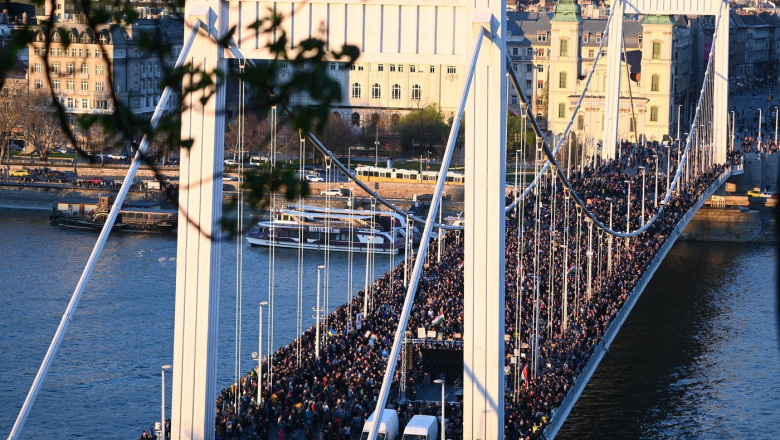The Hungarian government intends to adopt a law to prevent protesters from blocking bridges. Viktor Orban states that this is to protect the rights of those who do not participate in protests, according to Reuters.
Bridges, especially those in the capital Budapest which is crossed by the Danube, have become central points of anti-government protests in recent years, with demonstrators using them to make their demands known. On Tuesday, thousands of people protested on Elisabeth Bridge in Budapest against a law aiming to ban the annual Pride parade for LGBTQ+ groups and which, according to critics, is part of a larger crackdown on democratic freedoms ahead of the 2026 parliamentary elections. Orban, who is facing a growing opposition before the elections, has criticized the LGBTQ+ community and promised to limit foreign funding for independent media and non-governmental organizations in Hungary.
“The freedom of assembly is important but it is not normal for thousands or tens of thousands of people to be stuck in traffic,” Orban said in a radio interview.
In power since 2010, Orban has stated that the new law is necessary to prevent bridge blockades, as a judicial decision currently allows these demonstrations. “Judges apply the law adopted by the government. We can only do one thing, we can change the law to prevent more bridges from being blocked through judicial rulings,” Orban, who promotes a conservative-Christian agenda, said. Last month, the parliament, dominated by Orban’s Fidesz party, passed a law banning the Pride parade, arguing that it could be harmful to children. Festival organizers argue that the event poses no threat to children and plan to proceed with it despite the ban.
Previously, Orban stated that the fact that protests like Tuesday’s are taking place demonstrates that there is no threat to democracy in the country, referring to the opposition’s protests against the ban on Pride as a “challenge.”

